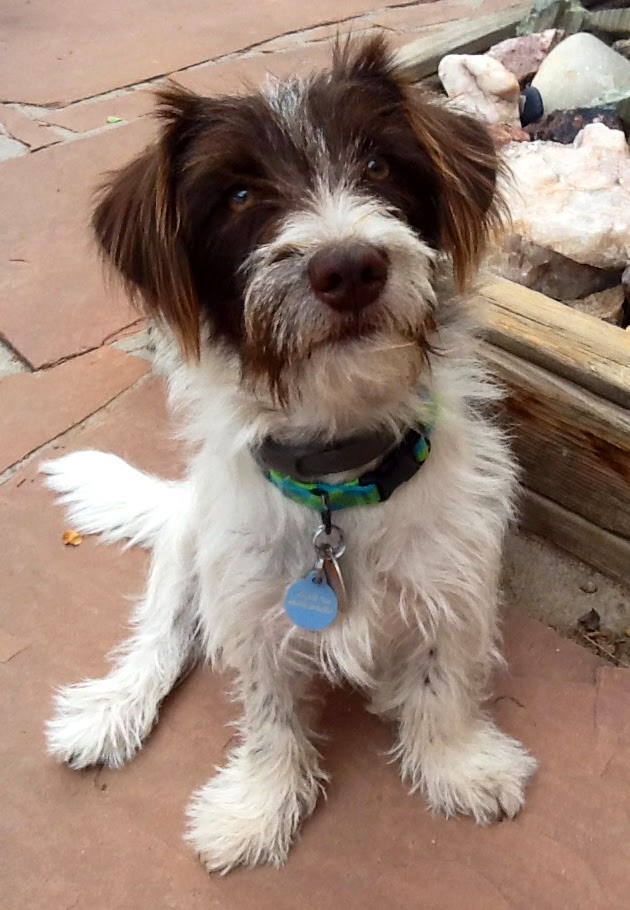Last week my daughter and I and our 10-month old recently rescued puppy, Jazz, all graduated from ‘Puppy Basics’.
Jazz, who is 13.5 pounds of clever terrier-plus-guess-what, and my daughter, who is wise and a few days shy of her 11th birthday, breezed through the lessons: relax, sit, stay, off, down, lineup, come, and leave it. I did fine, too, as I am fascinated by animal behavior and what it teaches us about ourselves and others.
At the end of the class, as is her custom, our instructor Judy reminded us to generously praise our dogs and ourselves because the most important rule is, “Always end with a smile!”
“Your puppies crave approval,” Judy reminded us repeatedly over the six weeks of classes. “You want to set up a success model for their training. Praise and treats are powerful reward messages and your dogs learn quickly because learning is fun!”
As we enjoyed our success at the end of that class, I made a mental note to post a blog about reinforcing success when it comes to writers and their creative projects.
Everyone, whether canine or human, wants to succeed at whatever the task, and praise, treats, and smiles reinforce and reward a job well done.
Simple formula: task accomplished = reward.
And judging from the wagging tails and big smiles all around the class, task accomplished = reward is also a powerful formula for success.
The need for a reward at the end of a task accomplished may be even more important for writers and other creative people who often work in solitude.
If you spend hours alone at your desk or easel, working with words, paint, or clay, you want to set up your very own simple system of task accomplished = reward.
1) Decide what you are going to accomplish today (or tomorrow) when you sit down to work.
2) Don’t make your task too big or too small (think Goldilocks); make it doable in the time you have.
3) Accomplish your task–whether you set out to draft 500 words, edit a chapter, sketch out your basic shapes on canvas–do so without judging your results. You will come back to your work tomorrow or the day after.
4) Reward yourself for task accomplished! Tell yourself, “Good job!” Eat a chocolate. Watch 15 minutes of your favorite binge TV, go for a walk–make your rewards tangible and pleasurable!
5) Throughout the process, be aware of your intrinsic rewards: the pleasure you take from your self-expression, the anxiety released because you did not procrastinate, freedom from self-attack, ease because you put one foot in front of the other and showed up at the page or palette.
One final word on Always End With a Smile: There is no failure, only “oopsies”.
No one gets it right every time. During ‘Puppy Basics’, Jazz and the other puppies sometimes missed commands and so did their human owners. Judy made sure we all selected a word we would use for those tasks not quite accomplished. My daughter and I chose “Oopsie!” It’s a word we use for ourselves, too.
If I’m not thrilled with a paragraph I revised or a plot point in a story I’m developing or the lead for an article, then I tell myself, “Oopsie!” The paragraph will be there tomorrow when I come back to work. As for today, I accomplished the task at hand, and I’ve earned myself a nice piece of dark chocolate with almonds and a true smile!


